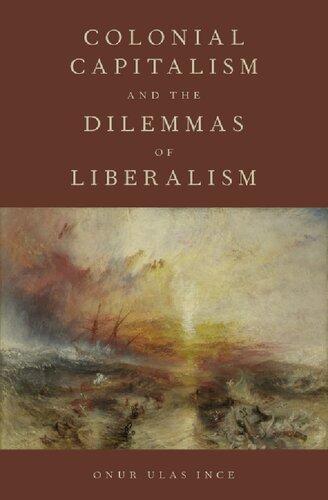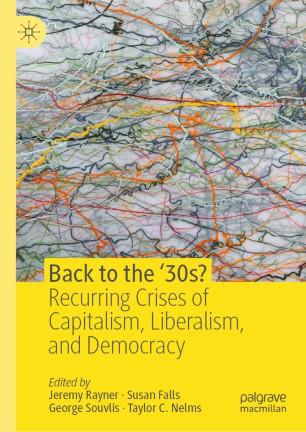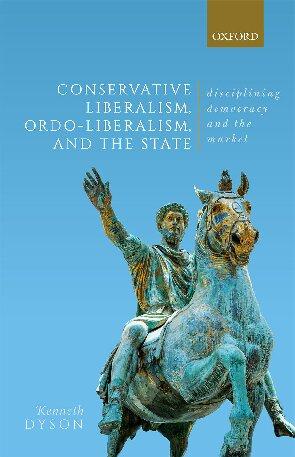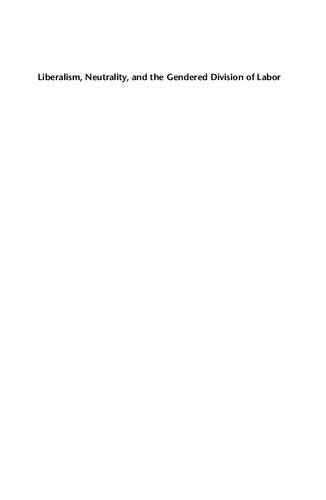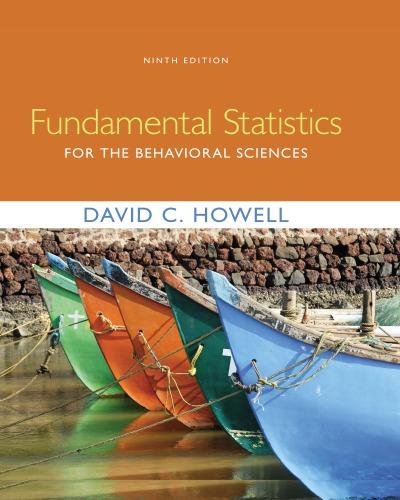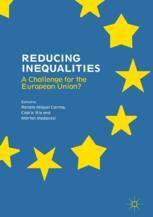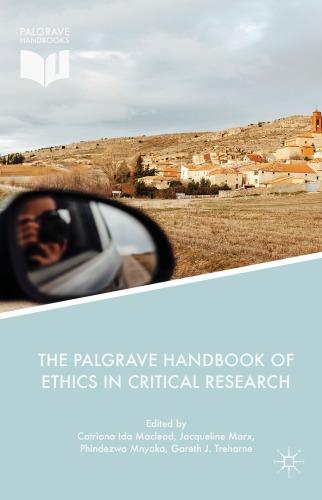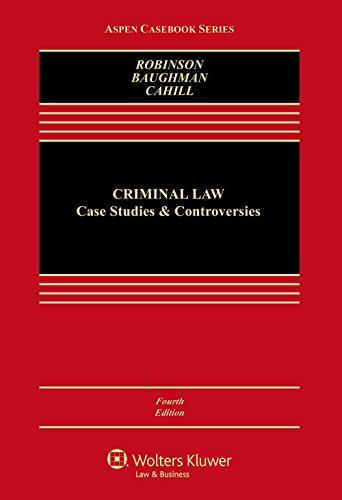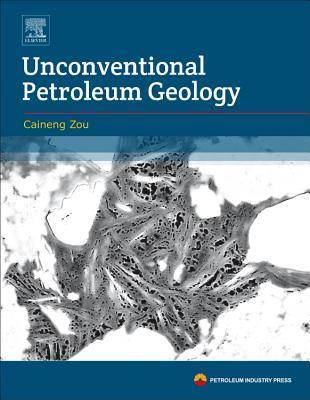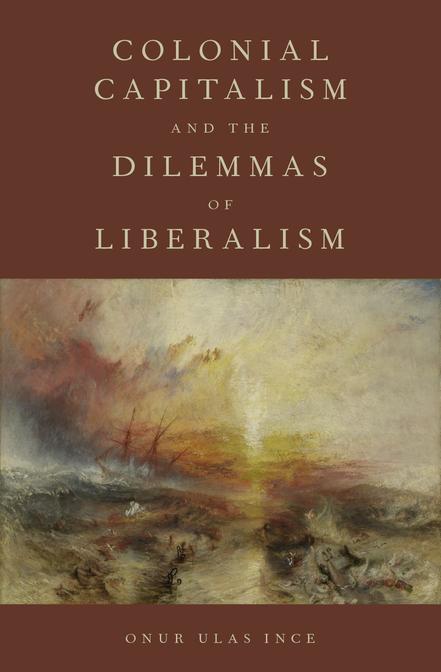Colonial Capitalism and the Dilemmas of Liberalism
ONUR ULAS INCE
Oxford University Press is a department of the University of Oxford. It furthers the University’s objective of excellence in research, scholarship, and education by publishing worldwide. Oxford is a registered trade mark of Oxford University Press in the UK and certain other countries.
Published in the United States of America by Oxford University Press 198 Madison Avenue, New York, NY 10016, United States of America.
© Oxford University Press 2018
All rights reserved. No part of this publication may be reproduced, stored in a retrieval system, or transmitted, in any form or by any means, without the prior permission in writing of Oxford University Press, or as expressly permitted by law, by license, or under terms agreed with the appropriate reproduction rights organization. Inquiries concerning reproduction outside the scope of the above should be sent to the Rights Department, Oxford University Press, at the address above.
You must not circulate this work in any other form and you must impose this same condition on any acquirer.
CIP data is on file at the Library of Congress
ISBN 978–0–19–063729–3
1 3 5 7 9 8 6 4 2
Printed by Sheridan Books, Inc., United States of America
To my parents, Hülya İnce and Nedim İnce.
Annem Hülya İnce ve Babam Nedim İnce’ye.
CONTENTS
Acknowledgments ix
Introduction: Liberalism and Empire in a New Key 1
LIBERALISM, CAPITALISM, AND EMPIRE 2
STRUCTURE OF THE BOOK 7
WAYS FORWARD 9
1. Colonial Capitalism and the Dilemmas of Liberalism: Framing an Inquiry 13
LIBERALISM AND EMPIRE: REMATERIALIZING A FIELD 14
NEW DILEMMAS OF LIBERALISM 24
CONCLUSION: STEREOSCOPIC VIEW OF HISTORY 34
2. In the Beginning, All the World Was America: John Locke’s Global Theory of Property 38
LOCKE AND THE ATLANTIC 40
MONEY AND MORALITY OF ACCUMULATION 47
MONEY, POSSESSION, AND DISPOSSESSION 55
CONCLUSION: BEYOND POSSESSIVE INDIVIDUALISM 69
3. Not a Partnership in Pepper, Coffee, Calico, or Tobacco: Edmund Burke and the Vicissitudes of Imperial Commerce 74
EMPIRE AND COMMERCIAL CAPITALISM IN INDIA 77
BURKE’S COMMERCIAL IDEAL 88
IMPERIOUS COMMERCE 95
BURKE’S “PECULIAR UNIVERSALISM” REVISITED 102
CONCLUSION: IMPERIAL FRONTIERSMEN, GENTLEMANLY CAPITALISTS 110
4. Letters from Sydney: Edward Gibbon Wakefield and the Problem of Colonial Labor 113
POLITICAL LABOR PROBLEM: THE METROPOLE 117
ECONOMIC LABOR PROBLEM: THE COLONY 127
SYSTEMATIC COLONIZATION: CAPITAL AND EMPIRE 139
CONCLUSION: THE EMPIRE OF LIBERTY 154
Conclusion: Bringing the Economy Back In 158
Notes 165
Index 205
ACKNOWLEDGMENTS
It takes a village to write a book. I have incurred many debts over the ten years that it took to chisel an intuition into a question, an argument, and eventually a book. Of those debts, heavy are those owed to Susan Buck-Morss, Isaac Kramnick, Richard Bensel, Jason Frank, and Diane Rubenstein, mentors who evinced an exemplary combination of encouragement of unorthodox thinking and demand for scholarly rigor. I am grateful for the unwavering support and exacting standards of Jeanne Morefield, who, as a friend, interlocutor, and outstanding scholar of liberalism and empire, has read and commented on my written work more than anybody else. I hold the privilege of having Andrew Sartori, Siraj Ahmed, Aziz Rana, and William Clare Roberts read and commented on the entire manuscript. The argument of the book stands much clearer and sharper thanks to their extensive and trenchant criticisms. The remaining faults, of course, are mine.
I have found intellectual inspiration and a rare generosity of spirit in James Tully, Barbara Arneil, Karuna Mantena, and Daniel O’Neill—all pioneers in the study of political theory and empire—who provided feedback on various sections of the manuscript. Robert Nichols has been a kindred mind and an astute critic of my work in our shared endeavor of bringing the study of colonialism and capitalism within the fold of political theory. J. G. A. Pocock awed and humbled me by taking the time to read the monstrously long first draft of the chapter on E. G. Wakefield and mail me his comments. The chapter on Edmund Burke benefited greatly from Robert Travers’s expert advice. Adom Getachew and Sayres Rudy have my thanks for their incisive commentary on the framing chapter of the book. My exchanges with Alex Gourevitch and Burke Hendrix on capitalism, primitive accumulation, and liberalism were a kind of intellectual calisthenics that kept my thinking in shape. I have to commend Murad Idris’s professionalism in helping me to clarify the book’s stakes. Dear friend and indomitable critic Ayça Çubukçu has my thanks for her relentless probing into the assumptions,
commitments, and limits of the book as well as for her warm hospitality in Cambridge, Massachusetts. Long and intense conversations with Anthony Reed and Carl Gelderloos, extending into the early hours of many a morning, proved formative of my ideas in more ways that I can identify.
Some of the insights central to this project emerged from several institutional involvements during my time at Cornell University. Beyond the Department of Government, I found an intellectual home at the Institute for Comparative Modernities that invited a wealth of transdisciplinary and heterodox research. I will always be thankful to Barry Maxwell for pulling me into the institute as soon as it got off the ground and involving me with its lecture series, conferences, and reading groups. I was also fortunate enough to be part of the New Enclosures Research Working Group at Cornell, which pushed my research horizons beyond political theory and intellectual history, and gave me the opportunity to discuss parts of the project with James Scott, Silvia Federici, and George Caffentzis. Of the founding members of the Working Group, the formidable Charles Geisler has my special thanks and admiration. Harvard Law School’s Institute for Global Law and Policy provided an ecumenical venue for intellectual exchange with critical legal scholars on questions central to the project. I would like to thank Sundhya Pahuja, Zoran Oklopcic, and Matthew Craven for their close engagement with the first chapter of the manuscript at the 2013 workshop. I also found the chance to present the arguments of the book at the Cornell Political Theory Workshop, Politics of Land Conference at the University of Alberta, Law and History Workshop at Tel Aviv University, and the Institute for Global Law and Policy. The organizers and the audiences have my thanks.
It was a pleasure to work with David McBride at Oxford University Press. I heavily relied on the patient and able support of Emily Mackenzie and Janani Thiruvalluvar in preparing the manuscript for publication. Ginny Faber has my heartfelt thanks for the invisible yet invaluable labor of copyediting.
Elements of this book have appeared in previous journal articles. I am grateful to the editors of The Review of Politics, Polity, Cambridge University Press, and Springer for the permission to revise published material.
The greatest debt is due to my life companion, better half, and fellow scholar, Sinja Graf. From the inception to the conclusion of the book, which stretched over a decade, two intercontinental moves, three jobs, and plenty of rough patches, she has not lost her patience and acumen in listening to my reflections and reading every piece of writing that I have sent her way. My debt to her is one that I hope will keep accruing for the decades to come.
This book is dedicated to my parents, Hülya and Nedim Ince.
Introduction
Liberalism and Empire in a New Key
In his magnum opus of political economy, Adam Smith described the discovery of America and the circumnavigation of the Cape of Good Hope as “the two greatest and most important events in the history of mankind.” His estimation of the consequences of these oceanic expeditions, however, was less than sanguine.
By uniting, in some measure, the most distant parts of the world, by enabling them to relieve one another’s wants, to increase one another’s enjoyments, and to encourage one another’s industry, their general tendency would seem to be beneficial. To the natives, however, both of the East and West Indies, all the commercial benefits which can have resulted from those events have been sunk and lost in the dreadful misfortunes which they have occasioned.1
In the brief span of a passage, Smith encapsulated a key contradiction of the global political economic order that had been taking shape since the sixteenth century. Smith’s world was a world of transoceanic trade, an emergent international division of labor, and growing prosperity and social refinement in Europe. It was also a world of colonial empires replete with territorial conquest, demographic extirpation, and enslavement in the West, and militarized trading, commercial monopolies, and tribute extraction in the East. For Smith and his fellow Enlightenment thinkers, modern Europe had witnessed the birth of a historically unique form of human society, one that promised a new model of peace, opulence, and liberty. The same Europe also presided over a violent network of colonial economies that forcibly harnessed the West and the East into a world market. This paradox—a liberal, commercial society incubating in a world of illiberal, colonial empires—was at the root of Smith’s ultimately ambivalent assessment of global commerce.2 This book is a study of the constitutive and contradictory relationship between capitalism, liberalism, and empire. It argues that British political and economic
thought, both before and after Smith, was marked by a tension between the illiberal origins of global capitalist relations and the theoretical attempts to envision these capitalist relations in liberal terms. It examines the theoretical efforts of liberal thinkers to explain, navigate, and justify the coercion inherent in colonial economic relations and connects these efforts to the liberal ideology of capitalism as an economic system of market freedom and equality. I maintain that this tension flared most vividly at those moments when the colonial land expropriation, slavery, and resource extraction that were central to the formation of global capitalism appeared too cruel, rapacious, and tyrannical when judged by the liberal political economic principles that were taking shape in Britain. At the heart of my analysis is the curious (and curiously persistent) imagination of the British Empire as a liberal empire of commerce, in spite of the violent record of dispossession, servitude, and depredation that typified its economy, most blatantly in the colonies. I contend that the Britons could extol their empire as the empire of liberty and the harbinger of a peaceful, civilized, and prosperous global order only on the condition that the violence that undergirded colonial economic structures was ideologically contained. I further argue that such ideological containment owed a great deal to the theoretical efforts of liberal intellectuals, specifically John Locke, Edmund Burke, and Edward G. Wakefield, who strove to mediate between the illiberality of British colonial capitalism and the liberal British self-image. The study elucidates this ideological problem around the political-economic debates between the mid-seventeenth and midnineteenth centuries over the status of property, trade, and labor relations within the empire. By the end of the period examined here, the British political and intellectual opinion could applaud the British Empire as the standard-bearer of private property, free trade, and free labor, thanks to the successive disavowals of the territorial conquest, commercial pillage, and labor bondage that built Britain’s imperial economy across North Atlantic, South Asia, and Australasia.
Liberalism, Capitalism, and Empire
The gulf between the self-professed liberalism of the British Empire and the illiberalism of its actual history has been a major leitmotif in the recent “imperial turn” in the field of political theory.3 In the words of two influential theorists, a guiding premise of studying political thought in the imperial fold is that “European constitutional states, as state empires, developed within global systems of imperial and colonial law from the beginning,”4 and consequently, “[e]ven when practical and administrative issues were to the fore, the discussion of what we can broadly call colonial government encompassed disputes over universality, sovereignty, freedom, democracy, property, and justice.”5 Groundbreaking works in this
vein first appeared with the discovery that canonical liberal thinkers like John Locke and John Stuart Mill were personally and professionally invested in the imperial enterprise.6 Intellectual historians and political theorists expanded on those efforts, adopting imperial history as a critical vantage point for revisionist appraisals of these and other eminent members of the European political theory pantheon. Clustering around the British Empire, such reappraisals evinced a palpable anti-Whiggism in exposing the philosophies of subordination that authorized and justified its systematic violence against non-Europeans. For a growing number of scholars, the juxtaposition of “liberalism and empire” has since come to denote both a specific area of study and its central problematic, that is, a contradictory assemblage that comprised, on the one hand, principles of moral equality, subjective rights, the rule of law, representative government, and ethical pluralism, and on the other, practices of domination, foreign rule, naked coercion, untrammeled power, disenfranchisement, and exclusion.
This book sets out to challenge a notable disposition that stamps this scholarship—namely, the penchant to frame the connection between liberalism and empire primarily as a problem of the politics of representation, culture, or identity. Notwithstanding differences of textual interpretation, historical studies in this field frequently concentrate on liberal thinkers’ perceptions of and normative judgments about the colonized peoples, which these studies then construe as an index of liberalism’s relationship to imperial rule. Although the exact nature of the liberalism-empire nexus remains controversial,7 the controversy remains noticeably unified in its occupation with questions of universalism and difference, its heavily intratextual approach, and its attention to the linguistic over the material contexts of the liberal ideas under study.8
By itself, this methodological preference is not problematic. As with any other interpretive lens, it brings into focus certain features of liberalism’s interface with empire, leaving others outside the depth of field. The problem is that among the dimensions that are left blurry is the socioeconomic and institutional materiality of empire, which in turn limits the capacity of this scholarship to analyze and critique liberal imperialism. As I detail in the next chapter, on the critical front, a culturalist focus on universalism and difference commands little firepower against the presentist vindications of the British Empire as the historic protagonist of economic globalization.9 On the analytic side, a blanket politics of universalism cannot adequately elucidate how liberal thinkers parsed and ordered the range of cultural differences between Europeans and non-Europeans, and why they emphasized certain differences over others as being more relevant for imperial justification or anti-imperial critique.
This book attempts to address these limits by “rematerializing” the relationship between liberalism and empire. The task involves complementing an account of the semantic context of liberal ideas with an analysis of the socioeconomic
context, that is, paying as much attention to the institutional structures and economic practices that constituted the fabric of empire as to the political languages and vocabularies in which liberal intellectuals articulated their assessment of it. There are no doubt multiple ways of rematerializing the imperial context (e.g., gender, ecology, technology, law, governance), each of which would highlight a different aspect of empire’s formative impact on liberal thought. I propose viewing the materiality of empire specifically through the lens of “colonial capitalism,” a notion inspired by critical social theory and colonial political economy. As an analytic framework, colonial capitalism rests on the fundamental premise that capitalism has historically emerged within the juridico-political framework of the “colonial empire” rather than the “nation-state.” It grasps capitalist relations as having developed in and through colonial networks of commodities, peoples, ideas, and practices, which formed a planetary web of value chains connecting multiple and heterogeneous sites of production across oceanic distances.
A major corollary of the colonial perspective on capitalism is to underscore the constitutive role of extra-economic coercion in effecting capitalist social transformations. Within this picture, colonial land grabs, plantation slavery, and the forced deindustrialization of imperial dependencies configure as crucial moments in the global formation of capitalism.10 Borrowing a key concept from Marx’s account of the origins of capitalism, I employ the term colonial primitive accumulation to theorize the forcible transformation and uneven integration of colonial land, labor, and resources into global networks of capital.11 My focus falls on colonial sites, not because primitive accumulation did not also transpire in Europe, but because it played out much more brutally at the imperial frontiers, called for different frameworks of justification, and exercised liberal metropolitan minds with more vexing questions.
The principal contribution of this framework to the study of liberalism is to highlight the economic undertakings of colonial entrepreneurs as a type of colonial anomaly that had to be accounted for by the liberal standards of metropolitan thought. The optic of colonial capitalism redefines empire’s challenge to liberalism by shifting the focus from who the colonized are to what the colonizers do, that is, from the cultural difference of the subject populations to the deeds of imperial agents themselves. In charting a new map of the liberalism-empire nexus, I mainly follow metropolitan reflections on territorial conquest, indigenous dispossession, bonded labor, and armed trading, rather than judgments about the rational capacity or civilizational status of the non-Europeans. For sharpening the contours of this problem, the study capitalizes on the peculiarity of the British imperial ideology. Although the British matched and eventually surpassed their European rivals in the capacity and readiness for imperial warfare, conquest, and brutality, they stubbornly believed themselves to be, in David Armitage’s classic formulation, a “Protestant, commercial, maritime, and
free” people.12 The clash of this commercial, pacific, and free self-image with the ruthless expropriation and despotic coercion of colonial economies offers a window onto the tension between the liberal conceptions of capitalism and its illiberal conditions of emergence and possibility.
Cognizant of the notoriously protean character of the term “liberalism,” I purposely restrict the investigation of liberalism to its instantiations in metropolitan theories of capitalism rather than taking on the entire range of family resemblances associated with the term.13 I identify the primal norms of contractual freedom and juridical equality as the ideational core of the liberal conception of capitalism. While freedom and equality as normative values are most commonly associated with liberal political theory, they were also, and perhaps more systematically, elaborated and enshrined in the language of classical political economy. Originating in the seventeenth century, political economy as a field of knowledge evolved in tandem with global capitalism, and its practitioners often proclaimed it to be the appropriate medium for explaining the dynamics of commerce and capital, as well as for charting an enlightened course of domestic and imperial policy.14 By concentrating on political economy, this book therefore anchors core tenets of liberalism in a sphere of reflection that adopted capitalist social forms and their global variegation as its principal object of inquiry.
I dissect the entangled histories of liberalism, capitalism, and empire around three critical moments of imperial expansion and controversy in which the theoretical parameters of liberalism were articulated. The first of these is the seventeenth-century colonial land appropriation in the Americas that enabled the formation of Atlantic colonial capitalism and ignited momentous European debates over legitimate claims to property in the New World. The second moment centers on the East India Company’s ascendancy in Bengal and British merchant capital’s intrusion into the Indian economy, which triggered a public storm about the nature of Anglo-Indian trade. The third and final moment concerns nineteenth-century schemes of imperial labor allocation that aimed to promote colonial emigration and settler capitalism in Australasia, which threw into question the legal and economic boundaries between free and bonded labor. “Property,” “exchange,” and “labor” thereby constitute a triadic constellation at the core of liberal political economy’s encounter with colonial capitalism. Extralegal appropriation of land in America, militarized trading in India, and elaborate schemes of dependent labor in Australasia each represents a vital moment in the development of global capital networks and a challenge to narrating this development as the triumph of private property, market exchange, and free labor.
Corresponding to the central questions of property, exchange, and labor, I analyze the theoretical attempts of Locke, Burke, and Wakefield to reconcile the essentially liberal image of Britain’s capitalist economy with the illiberal
institutional arrangements and practices on which it stood. My specific focus on these three intellectuals stems from their simultaneous commitment to a modern capitalist economy, to imperial expansion as an instrument of economic prosperity and political power, and to the primal liberal norms of contractual freedom and juridical equality. These multiple and often incongruent theoretical commitments render their writings privileged ground for detecting the frictions between liberalism, capitalism, and empire and their negotiation in the register of political economy. Compounding this rationale is the active involvement of the three thinkers in Britain’s imperial politics: Locke as Secretary to the Council of Trade and Plantations and later a member of the Board of Trade; Burke as a member of the Parliamentary Select Committee on India; Wakefield as a pro-colonization publicist, lobbyist, and the intellectual leader of the Colonial Reform Movement. Their shared institutional and intellectual investments in the colonial capitalist enterprise and the empire of liberty furnishes the overarching framework within which a comparison of these otherwise dissimilar thinkers can generate unexpected insights into the liaisons between liberalism and empire.
The following chapters demonstrate that when compared to the twenty-firstcentury reclamations of British imperialism as the vanguard of economic globalization, Locke, Burke, and Wakefield were ironically less self-assured about the coercive interventions that went into making Britain’s imperial economy. Their disquiet about the illiberality of empire was reflected in their strategies of “disavowal.” Crucially, none of them denied the fact of indigenous dispossession, unequal exchange, and labor bondage that pervaded colonial economies. Instead of joining contemporary critics in denouncing the imperial system, however, they resorted to theoretical maneuvers, rhetorical strategies, fictions, and myths that insulated the liberal image of Britain’s commercial economy from the enormities of colonial ventures. These theoretical innovations include Locke’s myth of mankind’s “universal consent” to the use of money, which ultimately blamed Native Americans for their own expropriation; Burke’s fantasy of “imperial commerce” that promised equitable economic dealings between the British and their conquered Indian subjects; and Wakefield’s fictive “settler contract” whereby poor colonial immigrants acceded to work as wage laborers rather than become independent landowners. Such efforts at reconciliation also set these three thinkers apart from other political economists, like Adam Smith and David Hume, for whom the empire, particularly in its territorial and extractive variety, was nigh irredeemable from a liberal economic perspective. When the liberal British self-image traveled overseas, it crashed against the violent shores of colonial capitalism. It fell to the liberal intellectuals of the empire, such as the three examined here, to brace the hull.
Structure of the Book
I advance the main argument of the book in four chapters. Chapter 1 elaborates the analytic framework of colonial capitalism for reconstructing the relationship between liberalism and empire. I offer a more detailed engagement with the extant literature and outline a social theory of the imperial context as a promising way forward. Drawing on critical political economy, social and economic history, and postcolonial theory, I construct an account of the heterogeneous and globally networked property structures, exchange systems, and labor regimes that comprised Britain’s imperial economy. Against this background, I delineate the dilemmas of liberalism that materialized in the effort to reconcile the liberal British self-image with the violence of the empire. In crafting the hermeneutic key for interpreting the works of Locke, Burke, and Wakefield, I also clarify this study’s stance on methodological questions about contextualization, textual interpretation, and the risks of reductionism and anachronism.
Chapter 2 offers an analysis of Locke’s theory of property in the context of Atlantic colonial capitalism. Political theorists and intellectual historians have extensively documented Locke’s professional involvement in English colonialism and explored its implications for his political thought.15 What has gone unnoticed, however, is the centrality of Locke’s theory of money to the liberal justification of English colonization in America. The prevailing research agenda revolves around Locke’s labor theory of appropriation as the linchpin of his justification of indigenous dispossession. Recasting this problematic in the light of Atlantic colonial capitalism, I trace the shifting terms of Locke’s theory of property from labor to monetization as the grounds for adjudicating rightful property claims in the state of nature. This alternative account brings into conversation the colonial interpretations of Locke with the earlier Locke scholarship on natural law, morality, possessive individualism, and capitalism. I contend that Locke predicated labor and improvement on the use of money and construed the absence of monetization in America as a sign that the continent remained in the natural common and thereby open to nonconsensual appropriation. The ingenuity of Locke’s theoretical construction lay in conjuring up a myth of mankind’s universal tacit consent to the use of money and positioning Native Americans at once inside and outside such consent. The fiction of universal consent enabled Locke to hold Native Americans responsible for the natural common status of America and thereby sutured the rift between his liberal theory of private property and extralegal land appropriations in the New World.
Chapter 3 turns to Edmund Burke’s intervention in eighteenth-century debates on global commerce and empire as refracted through the East India Company’s rule in Bengal. Burke has been a major figure of investigation in the
recent literature on empire by virtue of his fervent effort to impeach Warren Hastings and champion the cause of the Indians against British oppression and misrule. Some scholars have interpreted Burke’s crusade as the expression of his peculiar and untimely cosmopolitanism; others have chalked it up to his conservative defense of empire or his anxieties about the revival of an atavistic spirit of conquest.16 The chapter expands the terrain of analysis by bringing Burke’s political economic writings to bear on his arguments for maintaining the empire while reforming its illiberal economic policies. I maintain that Burke’s diatribe against the Company rule was that it systematically violated the liberal economic principles that he believed defined the British national character. Holding onto both the empire and its liberal image required Burke to denounce the politicization of commerce in India and distance it from what he conceived to be Britain’s properly commercial—that is, peaceful and equitable—economic system. His condemnation of the Company’s system of tribute extraction can therefore be understood as an attempt to shore up the frayed boundaries between civilized commerce and unabashed pillage, between enlightened self-interest and unbridled rapacity, and between the “imperial commerce” that a reformed empire promised and the “imperious commerce” that had been destroying India.
Chapter 4 examines the writings of Edward Gibbon Wakefield, an unduly neglected and only recently rediscovered figure in the intellectual history of empire.17 At the center of my analysis is Wakefield’s theory of “systematic colonization” as a solution to the problems of overpopulation in Britain and labor shortage in its colonies. Historians of the British Empire and political economy have noted the remarkable success of Wakefield’s theory in converting the British public and political opinion to a pro-colonization position. I argue in this chapter that systematic colonization was not simply a strategy for imperial labor allocation but also an attempt to protect capitalist civilization from the dangers of “barbarization” both at home in the colonies. In Britain, proletarianization, unemployment, and pauperization stoked labor militancy and threatened social revolution. Relieving the population pressure by pauper relocation was not only economically ineffectual but also bred a repugnant species of frontier barbarism in the colonies by turning British emigrants into poor and rude smallholding farmers. Wakefield proposed to solve both problems at once by imposing preemptive crown rights and artificially inflated prices on colonial lands, which would compel emigrants to work for colonial capitalists. This strategy of state-led, preemptive proletarianization was aimed at rendering laborers structurally dependent on capitalists without formally abridging their civil liberties. Well aware that his plan contravened the laissez-faire orthodoxy of his time and foisted “wage slavery” on colonial settlers, Wakefield took refuge in utilitarian myths of contractual dispossession. He represented the imposition of colonial wage labor by the hand of the imperial state as nothing other than
the enforcement of a fictional “settler compact” whereby colonial emigrants had voluntarily agreed to divide themselves into capitalists and wage laborers for the sake of capitalist civilization.
Ways Forward
My overall purpose is to critically augment the existing scholarship on the political theory of empire by casting a number of key research questions in new theoretical light. Colonial capitalism opens the way to studying liberalism as a historically mediated language of politics that was worked out precisely in and through the political economic debates around the contested meanings of private property, market exchange, and free labor. The proposed interpretation does not abandon the engagement with the politics of universalism that revolves around metropolitan judgments about non-Europeans’ rationality, level of civilization, and capacity for autonomy or progress. Rather, it demonstrates how such normative judgments were mediated by liberal thinkers’ perceptions of the colonial dispossession, exploitation, and extraction that belonged to the history of global capitalism. Without attending to the contradictions of the imperial economy as a source of doubt, anxiety, and endogenous critique for liberal intellectuals, these mediations remain out of sight, leaving one with a blanket politics of universalism that hinges on the exogenous binary between the colonizer and the colonized.
Blanket conceptions of universalism run into difficulties in the attempts to explain why certain historically specific practices and not others were deemed to be universal; or why certain cultural differences were translated into deficits and braided into civilizational hierarchies, while others were considered irrelevant for purposes of colonial rule, dispossession, and exploitation. To name a few such questions that arise in the course of this book: Why did John Locke decisively put monetization before monotheism in America for deciding whether the New World was terra nullius and therefore open to English colonization? On what basis did Edmund Burke differentiate between Britain’s imperial subjects, defending Indians against British oppression, prescribing a despotic discipline for Africans, and envisioning the total extermination of Native Americans? How to explain that the enclosing and improving settler, who embodied the civilizing mission of the British Empire in the seventeenth century, was scorned by Edward Gibbon Wakefield, John Stuart Mill, and other Philosophic Radicals in the nineteenth century as the incarnation of civilizational degeneration?
The contextual variation in these questions is paralleled by the theoretical cross-pollinations displayed by the historical mutations of British liberal thought. Recent scholarship has generated an impressive inventory of the instances in
which liberal thinkers, when confronted with specific problems of colonial rule, enlisted as diverse and even conflicting political discourses as universal human progress, cosmopolitan pluralism, and insurmountable cultural difference.18 This book conjectures that such cross-pollinations emerged partly from intellectual efforts to suture the rift opened up in the universal claims of liberalism by the manifest unfreedom and inequality that characterized Britain’s colonial economies. Using the framework of colonial capitalism, we can take a step beyond the historicist reconstruction of liberalism’s collusion with other political languages and delineate the historical patterns that such collusions assumed in concrete contexts of imperial political economy. I hazard some reflections in this direction in the conclusion of this study.
The implications of my analysis extend beyond the study of liberalism’s relationship to empire. As I dwell on in some length in the next chapter, connecting liberal ideas to a social analysis of institutions and ideologies of capitalism discloses historical continuities that elude the purview of the linguistic contextualist approach to intellectual history. This book presents both a preliminary excursion, as well as an invitation for further inquiry, into the longer genealogy of the liberal imaginations of capitalism that have persisted down to our present. Conceiving of liberalism as a historically circumscribed and polyphonous political language, which is too convoluted to fit generalizing frameworks of social analysis, risks obscuring its status as the dominant ideology of the AngloAmerican-centered capitalist world order in the past century and a half. One is reminded of Charles Maier’s astute observation about the prevailing approach to the intellectual history of empire:
What remains remarkable from the viewpoint of intellectual history was the general unwillingness to admit that markets might have a connection with empire. During the long period of Marxist challenge and Cold War, attributing any underlying socioeconomic causation gave most intellectuals in the West great discomfort, and those who offered such theories were dismissed as fundamentally unsound. Better to affirm the obvious point that imperialism and empire are phenomena too complex to reduce to a uniform underlying causality. Multicausality became and remains the last refuge of historians.19
The current insistence on treating liberalism as an idiom that strictly exists in and travels through discrete semantic contexts similarly takes refuge in complexity, contingency, and discontinuity—the battle cries of the cultural turn in its assault on the totalizing frameworks of social analysis, mainstream and critical alike. Questioning this proclivity does not amount to rejecting the plurality and variance of discursive modes in which the liberal ideology of capitalism finds
articulation. Witness, for instance, Niall Ferguson’s glowing historiography applauding the British Empire for fashioning a liberal capitalist international order and Michael Ignatieff’s plea for an “empire lite” to protect the same from its illiberal enemies.20 Consider, on the other hand, Douglass North and Barry Weingast’s hugely influential institutionalist tribute to the Glorious Revolution for establishing the constitutional commitments necessary for capital accumulation to take off, and James Robinson and Daron Acemoglu’s narrative of the rise of capitalism on the bedrock of liberal, inclusive, and ostensibly anti-imperial institutions.21 As important as the attention to the specific vocabularies and argumentative protocols of these discourses is the attentiveness to their resonance and the staying power of the fundamental worldview that they project. The former offers an indispensable historical inventory of the liberal and essentially Euro-American conceptions of capitalism, but by itself cannot explain the resilience of this liberal image and its capacity to reinvent itself across different historical contexts. As I discuss in chapter 1, this is where “critical history,” which incorporates a social theory of the socioeconomic context and a notion of ideology, enters (or ought to enter) the picture.
A final conclusion of this book concerns the parameters of political theory as a distinct scholarly mode of reflection. One crucial upshot of extending the framework of political inquiry to problems of imperial rule is to theorize problems of dispossession and exploitation as political questions, which political theorists have for the most part preferred to relegate to the province of political economy or social theory. The historical elaboration of the liberal norms of freedom and equality through controversies on property, exchange, and labor offers a cautionary corrective against the current penchant to sequester the domain of “the political” from the putative field of “the economy” (a sequestration evocatively captured in Hannah Arendt’s resolute distancing of politics from the “social question”). Confining political theory of empire to problems of freedom and domination, consent and legitimacy, inclusion and exclusion, and universalism and pluralism amounts to a sociospatial expansion of the objects of political inquiry that stops short of revising the conceptual framework with which such inquiry is practiced. If the principal benefit of placing the history of political thought in an imperial context is simply to enrich those central problems that are already well entrenched and recognizable to political theorists, then “empire” ultimately remains an exogenous and contingent addendum. In contrast, a crucial trajectory of conceptual innovation promised by political theory’s encounter with empire is to undo the boundaries between the political and the social.22 This requires that we understand colonial empires not only as structures of political domination and subordination but, equally importantly, as economic systems of dispossession and exploitation. The necessary correlate of Ann Laura Stoler and Frederick Cooper’s celebrated call to place the metropole and the
colony in the same analytic field is to integrate political and economic analysis in a more capacious conceptual terrain, and treat political economy as a species of political theory.23
The discovery that cardinal categories of reflection in Western political thought were forged in the crucible of colonial empires has been vastly rewarding for the field of political theory. It would be equally rewarding to leverage the framework of colonial capitalism and imperial economy for expanding the conceptual boundaries of political inquiry.

